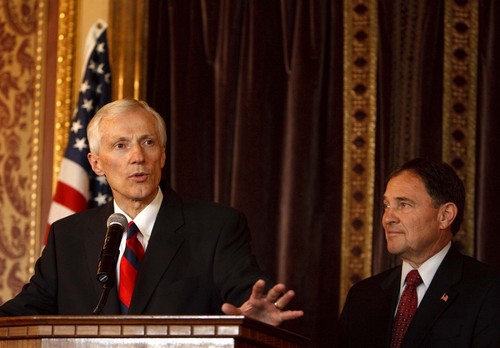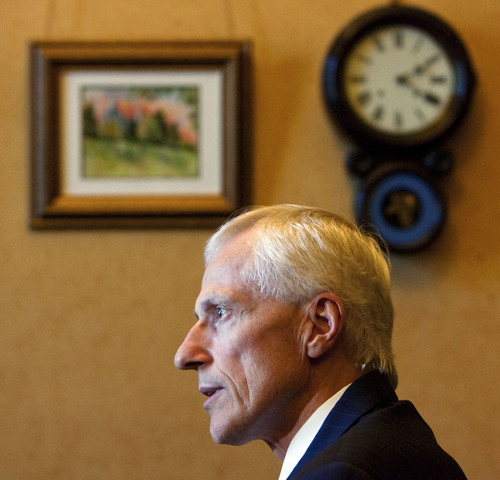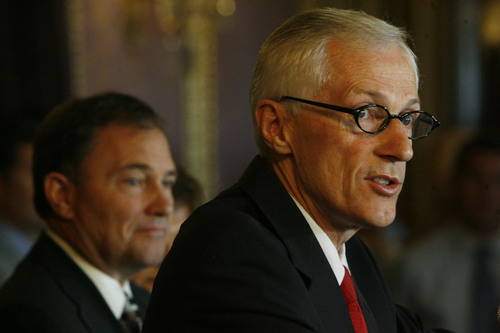This is an archived article that was published on sltrib.com in 2013, and information in the article may be outdated. It is provided only for personal research purposes and may not be reprinted.
Lt. Gov. Greg Bell, who was replaced Wednesday as lieutenant governor, has accepted a job as the next president of the Utah Hospital Association.
As association president, Bell will help shape policies important to nearly four dozen Utah hospitals around the state. He replaces outgoing president and CEO Rod Betit.
Betit was also a registered lobbyist on behalf of the organization, a role Bell may be legally prohibited from playing.
A Utah law — sponsored by Bell while he was in the state Senate — prohibits elected state officials, including the lieutenant governor, from lobbying the Legislature and executive branch for a year after leaving office.
In addition, under an executive order originally issued by Gov. Jon Huntsman and re-affirmed in 2010 by Gov. Gary Herbert, executive-branch employees are prohibited from being lobbied by any former state employee for two years.
When he announced his departure from the governor's office, Bell said he was looking for a high-level public policy job, but did not anticipate becoming a lobbyist.
Utah Democratic Party Chairman Jim Dabakis said Bell's integrity is beyond reproach, but the revolving-door nature of his new arrangement — and the speed with which Bell landed the new job — points to a too-common problem among elected officials.
"The prohibition is against constitutional officers being offered jobs and if somebody accepts a job within 24 hours of leaving office, the logical question is: Was this just a very short negotiation?" said Dabakis, who is also a state senator. "If the lieutenant governor is going to the hospital association to be a janitor where there is clearly no lobbying, that's one matter, but it's difficult to work for a lobbying [organization] and not lobby."
Ally Isom, deputy chief of staff for Herbert, said Bell abided by the ethics laws regarding government employees.
"While he was [lieutenant governor] he remained subject to the employees ethics act, which prohibits receipt or promise of reward in exchange for official action," she said. "He was also subject to the governor's executive order covering the ethical standards expected of executive branch employees."
Bell, the state's lieutenant governor since 2009, announced last month he would retire from office, citing financial strains created by a slumping real estate market. It is unclear how much Bell will make as hospital association president, but those familiar with the job expect it to be a substantial increase from his public-sector compensation. The lieutenant governor's salary is about $104,000 annually.
Betit, a former executive director of the Utah Department of Health, has been the association's president and CEO since 2010.
The UHA executive committee and board voted to confirm Bell on Friday.
Bell had been Herbert's point man on health-care policy for much of his time as lieutenant governor, helping to shape the state's response to the Affordable Care Act and other health-care issues.
One hospital association priority is to expand federal Medicaid to cover Utahns earning more than the federal poverty rate.
Under the Affordable Care Act, states can expand the program to cover those making up to 138 percent of the poverty rate — about $32,400 a year for a family of four, or $15,856 for an individual.
Herbert has delayed a decision on whether to allow Utah to accept federal funds for the expansion, which would cover 123,000 uninsured Utahns. The federal government will pay all of the initial coverage costs, phasing down over time to 90 percent of the expense.
The governor has held a series of lengthy meetings with staff on the possible expansion. He anticipates making a decision by the end of the year.







